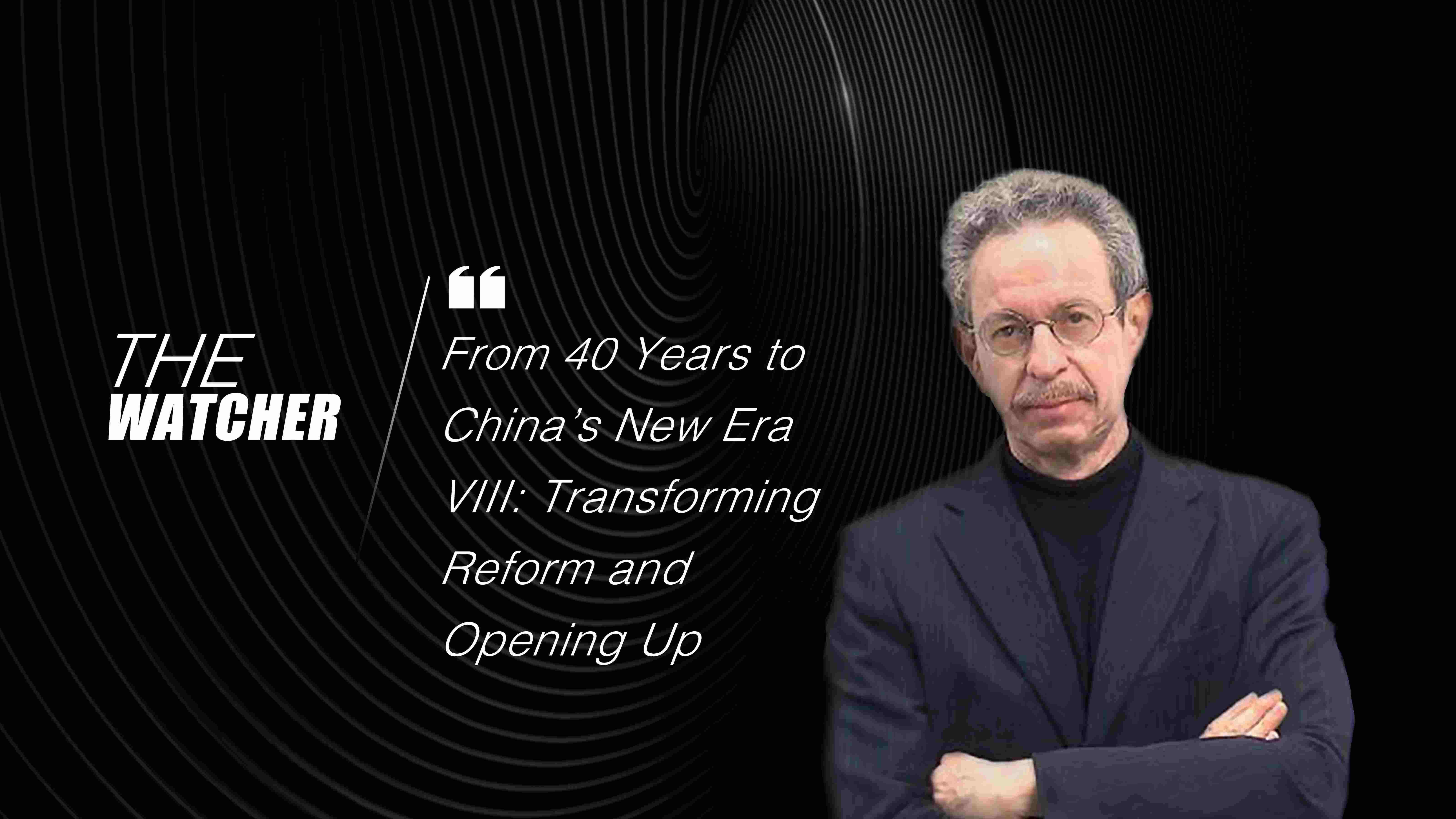
Opinions
17:17, 03-Dec-2018
From 40 Years to China’s New Era VIII: Transforming Reform and Opening Up
Updated
16:33, 06-Dec-2018
Robert Lawrence Kuhn
03:48

I'm Robert Lawrence Kuhn and here's what I'm watching: In this 40th year of China's reform and opening up, why, after four full decades, does China still need to reform and open up further? What lessons were learned? What challenges lie ahead?
When China's leadership looks back on the country's 40 remarkable years and then looks ahead to the grand goals of China 2035 and China 2050, what do they see? What do reform and opening up mean for China's long-term goals?
What's happening in China, like what's happening in most countries, is that developmental models are modified to suit changing realities - without concern for ideological labels or political categories. What has changed? Not changed? Should change? Never change?
What has changed: China's economic miracle, becoming the world's second-largest economy; astonishing elevation in standards of living; unprecedented global engagement.
What has not changed: Still low GDP per capita; still a developing country; growth still fueled by continuing urbanization; tensions between quantity and quality of growth; social contradictions exacerbated by rising expectations.
What should change: Reduce social disparities, pollution; enhance social services and scientific excellence; increase contributions to the developing world and to the global commons.
What will never change: China's special model; development as top priority; needing innovative ways of thinking; seeking inclusive growth, sustainable development, social democracy, a beautiful country, and a civilized and harmonious society; and promoting win-win cooperation for a global community with a shared future.
For China to achieve these grand goals, the country's domestic and international affairs should be integrated.
These two transformational ideas - reform and opening up - have enabled what China calls its “peaceful rise.” Can they also facilitate how the Chinese experience can contribute to the world, especially to the developing world?
Reform and opening up mark an inflection point in China's history, from a closed or semi-closed society to the largest trading partner of more than 120 countries, and actively engaged with international bodies, including the UN, WTO, G20 and BRICS.
There are challenges, of course - domestic tensions are not waning, and international frictions are not weakening.
As the world's second largest economy, China says it is now providing public goods to developing countries and the global commons - but, ironically, China feels that just when it has stopped being a so-called “free rider,” and is taking on increasing global responsibilities, suspicions about China's “global ambitions” are also increasing.
Chinese President Xi Jinping has promised numerous times, “the more developed China becomes, the more open it will be.” Much has been accomplished; much more must come. I'm keeping watch. I'm Robert Lawrence Kuhn.
(If you want to contribute and have specific expertise, please contact us at opinions@cgtn.com.)

SITEMAP
Copyright © 2018 CGTN. Beijing ICP prepared NO.16065310-3
Copyright © 2018 CGTN. Beijing ICP prepared NO.16065310-3